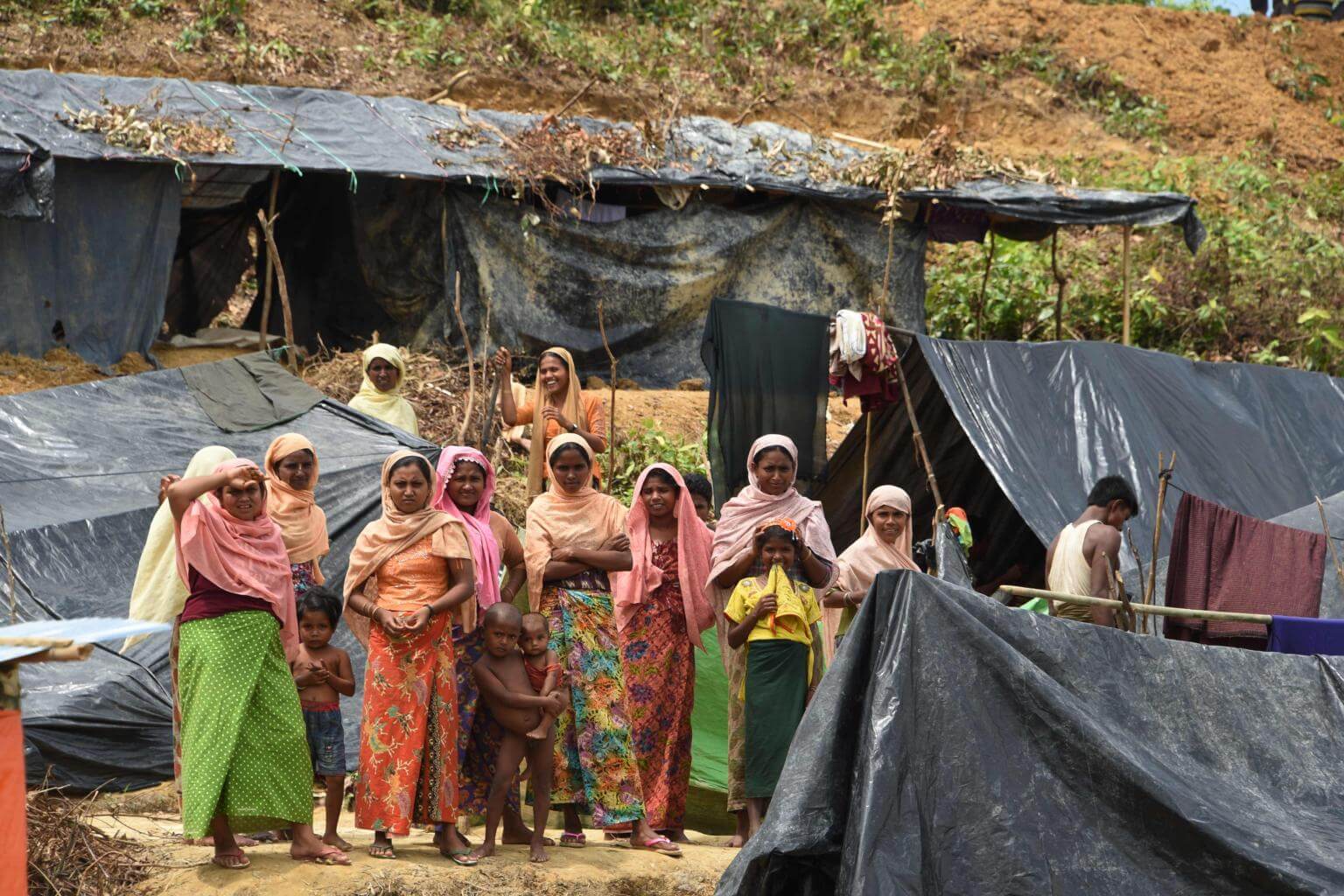Asean has to do more in Myanmar: The Nation
In its editorial on Sept 26, the paper says Asean's tepid statement condemning the violence is hardly enough when half a million people are under siege.
Sign up now: Get insights on Asia's fast-moving developments

A group of Rohingya refugees at the newly-expanded camp housing refugees from Myanmar known as Kutupalong Extension in Bangladesh's Ukhia district.
PHOTO: AFP
Follow topic:
BANGKOK (THE NATION/ASIA NEWS NETWORK) - While the action planned on the Rohingya crisis by Asean is welcome, it's rather late and it's certainly too little. The violence in Myanmar's Rakhine state since late last month last left hundreds dead and nearly half a million displaced.
Asean foreign ministers met in New York over the weekend on the sidelines of the United Nations General Assembly to discuss the grievous situation in an Asean member-country that until this year had held so much promise for the region's standing in the world.
In a statement issued after the meeting, the ministers expressed concern over the violence. Some will see that as a bold enough interjection for a bloc whose members have always steadfastly maintained a policy of non-interference in one another's domestic issues.
It was not enough. As complicated as the Rohingya issue is, it must be confronted, and if the Myanmar government is unwilling to do so, the international community and neighbouring countries must step in.
Asean has for a long time known about the communal conflict created as anti-Muslim sentiment swept through the predominantly Buddhist nation. It has left it first to the generals and now Aung San Suu Kyi's civilian regime to deal with their problems with ethnic minorities.
The current wave of violence broke out on August 25 when the Arakan Rohingya Salvation Army (ARSA) - a militant group formed to counter state repression of and vigilante violence against the Rohingya - launched a series of attacks on security outposts in Rakhine. The response from the military was completely out of proportion, merging with a planned operation to drive the Rohingya from Myanmar and into neighbouring Bangladesh, their ancestral homeland.
Asean in its statement condemned both the ARSA attacks and the slaughter that came in response - noting the loss of civilian lives, destruction of homes and displacement of large numbers of people. It noticeably did not repeat the United Nations' accusation of "ethnic cleansing".
It acknowledged that the situation is a complex inter-communal issue with deep historical roots, but it ignored the state's refusal to recognise the Rohingya as citizens, despite their long residency in Myanmar. The state calls them Bengalis and Muslim squatters. It revoked their citizenship in 1982 and now wants them all out of the country.
Where Asean lamely failed to address the issue of Suu Kyi's culpability, UN rights workers deserve much credit for consistently attempting to resolve the problem at its roots. While Asean does little to help, the UN endures the government's and Buddhist citizens' hostility over its work in Rakhine. Asean is supporting humanitarian relief efforts through the Myanmar government, which has pledged to deliver assistance to displaced people without discrimination.
This is laudable, but again, not enough.
Asean needs to act more directly and consider a radical departure from its staid, cautious ways to help solve the problem.
Suu Kyi appointed fellow Nobel Laureate Kofi Annan to head an advisory committee on the issue and he was able to provide useful recommendations. Now they need to be implemented. Asean agreed, but it has to do more than urge the government on. It has to find ways of participating directly in the implementation.
Asean is by now mature, strong and integrated enough to take a lead role in resolving problems facing its member-countries.
The Nation is a member of The Straits Times media partner Asia News Network, an alliance of 23 news media entities.

